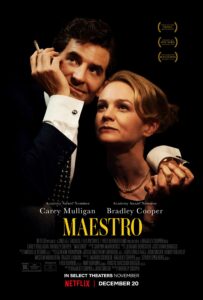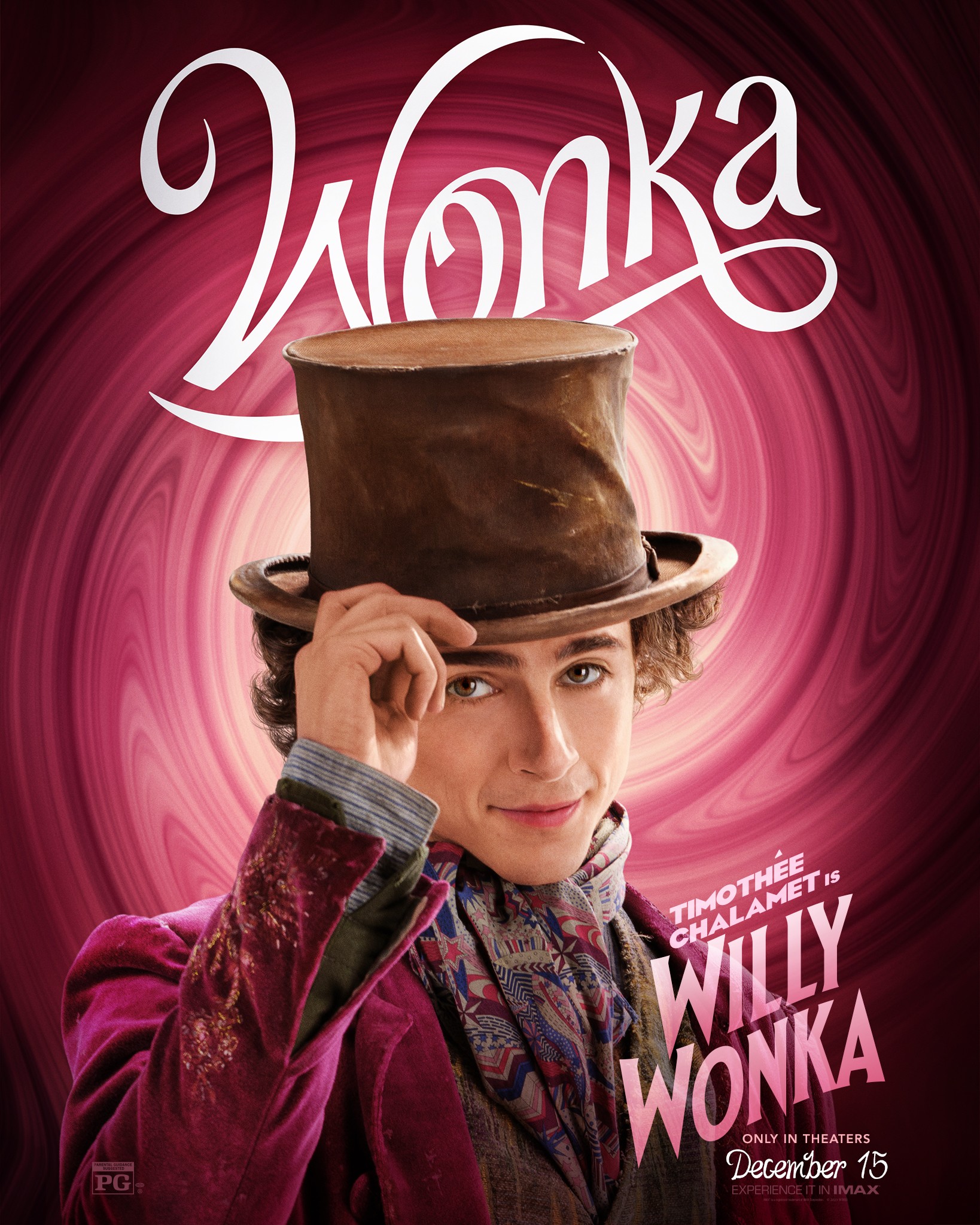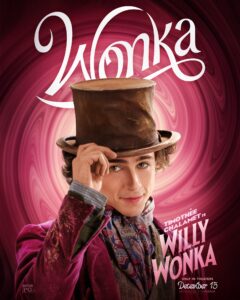Maestro
Posted on December 17, 2023 at 4:30 pm
B +| Lowest Recommended Age: | High School |
| MPAA Rating: | Rated R for some language and drug use |
| Profanity: | Strong language |
| Alcohol/ Drugs: | Alcohol and drugs, cigarettes |
| Violence/ Scariness: | Tense emotional confrontations, serious medical problems, sad death |
| Diversity Issues: | Some references to antisemitism and prejudice against LGBTQIA people |
| Date Released to Theaters: | December 15, 2023 |

It begins with a brilliant introduction to Bernstein as a character and to his story at an early turning point. Bernstein answers the phone. His voice is measured. Someone is ill. He expresses concern. But that means a once-in-a-lifetime opportunity and the second he gets off the call his ecstatic jubilation bursts from him as he kisses the man in his bed and races down to the theater, still in his robe. Conductor Bruno Walter is ill and Bernstein will conduct that night’s concert. To call it a triumph is an understatement. It was a sensation. And Cooper the director makes us not just see but feel it.
One of Bernstein’s early compositions was the music for what would become the musical and later Gene Kelly film “On the Town.” Cooper makes a very daring choice by having Bernstein and his date and future wife Felicia Montealegre (Carey Mulligan) attend a rehearsal that becomes something of a dream ballet. The characters interact with the dancers to show us the developing dynamic of their relationship.
In another extraordinary scene, Bernstein and Felicia, now married and middle-aged, are having an argument in their Manhattan apartment. It is staged with a deep understanding of the characters, their deep but sometimes toxic connection, and of how we as the audience take in the setting. Felicia sits by the window, still but furious. Leonard hunches over in a chair, talking quickly, deflecting rather than engaging. Surreally, outside the window, the Macy’s Thanksgiving Day parade is passing by and in the next room the Bernstein children are calling out to their parents to come see Snoopy. Every detail of pacing, composition, and emotion is superb.
And one more unforgettable scene — Cooper re-enacts Bernstein conducting Mahler’s 2nd that does more than copy the physicality of Bernstein’s version as it was filmed; he inhabits it, showing us the passion, the depth of understanding, and the way Bernstein was able to communicate the most delicate nuance to a huge number of musicians and singers.
This movie is not about Bernstein as the musician and composer. There are documentaries and scholarly analyses and archival clips for that. This is about Felicia and how their relationship reflected his conflicts but made possible his achievements.
This is the story of the marriage of two people who loved each other deeply and loved their children. Felicia knew that Leonard was gay or bi-sexual (as indicated by the “On the Town” scene) before they were married and she was confident that her acceptance would make their connected impenetrable in any meaningful way. But it is much harder than she expected. It is not just about who he is physically attracted to. It is that seduction is as core to him as music. Cooper at times, especially in scenes that re-create archival material like the Edward R. Murrow television interview, seems to be replicating Bernstein. But in much of the film, especially those moments when he is thrilled by someone new, we see it is all of one piece with his furious engagement with music, with creative partners, with romantic partners, with his children and his environment — to him, with all of life.
Parents should know that this film has extended mature material including sexual references and situations, very strong language, drinking, constant smoking, tense emotional confrontations, serious illness, and a sad death.
Family discussion: What should Leonard have said to his daughter? What held Leonard and Felicia together? Do you have a favorite of his compositions?
If you like this, try: Bernstein’s music in “Candide,” “On the Town,” and “West Side Story” and his wonderful Young People’s Concerts. And learn more about the years of study that went into this performance.









